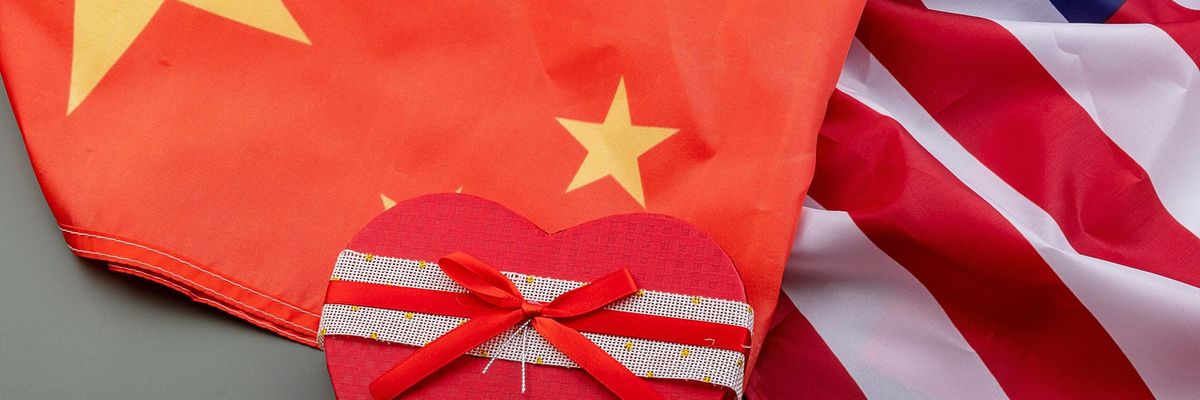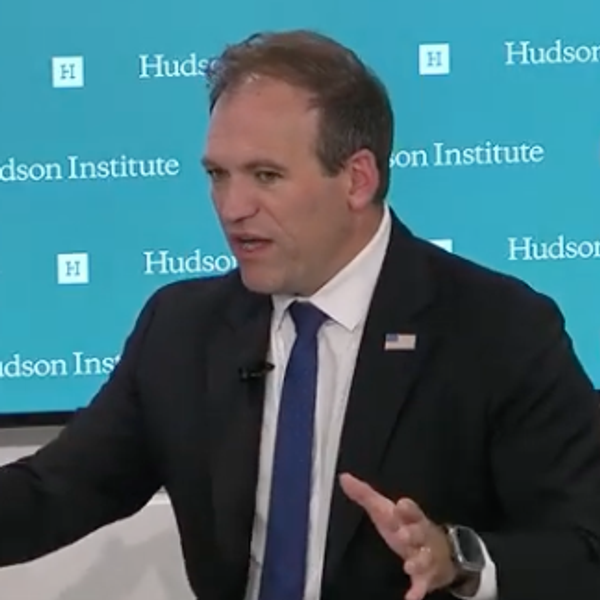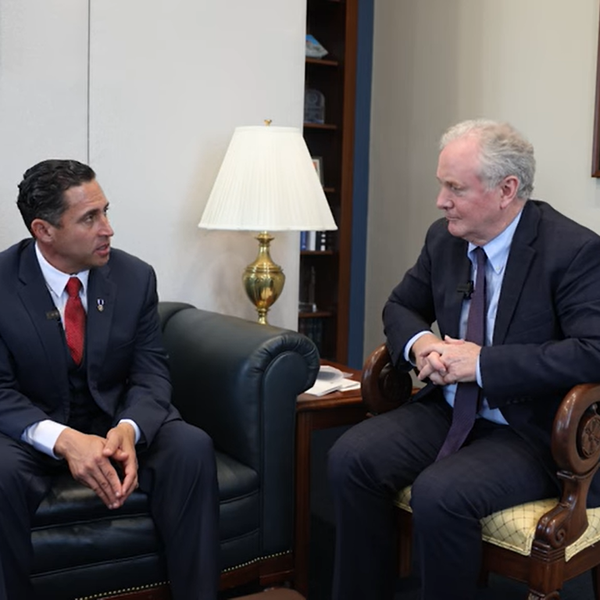The China policy debate in this country is increasingly detached from reality.
Confronted with a Biden administration policy that is quite hawkish and confrontational, some China hawks have decided to invent an imaginary détente policy to attack. Last week, A. Wess Mitchell of the Marathon Initiative laid out an extensive case against a Biden China détente policy that actually doesn’t exist.
“Now is not the time for the United States to pursue détente with China, as the Biden administration has been trying to do for several weeks now,” Mitchell, a former Trump State Department official, warned.
Mitchell isn’t alone in hallucinating a détente policy. Danielle Pletka of the American Enterprise Institute fretted that Biden was intent on a “reset” with China. Before that, Craig Singleton of the Foundation for Defense of Democracies criticized the administration because it was “wedded to a policy of détente.”
The hostility of hardliners to the idea of reducing tensions and accommodating other states is a given, but these attacks all miss the mark. Biden’s willingness to accommodate China has been wildly exaggerated.
While the Biden administration makes only the most half-hearted gestures in the direction of a minimal thaw (and won’t even follow through on that), China hawks rush to oppose an accommodation that isn’t happening. Biden has presided over the consolidation of a containment policy and a sharp deterioration in U.S.-China relations in just the last two years.
He ought to be pursuing détente, but he is doing no such thing. So what explains this growing drumbeat of opposition to something that isn’t happening?
It is common in foreign policy debates for supporters of more aggressive policies to misrepresent an administration’s position for rhetorical purposes. The distortion of the administration’s position allows critics to score partisan and ideological points while also presenting their more aggressive approach as the answer. This also enables hawks to police the boundaries of the debate to make sure that the only policy options under consideration are ones that they find acceptable.
We saw similar hawkish attacks during the Obama years. Obama ran a generally hawkish and interventionist foreign policy, so his hawkish opponents had to come up with a fantasy version of appeasement and “abandoning allies” to give them something to criticize. In both cases, the government’s real policies were often practically indistinguishable from the ones that the hawks wanted, but for their own reasons they had to conjure up a more useful target. One of those reasons was to provide an alibi for themselves when the meddlesome policies failed.
When U.S. and allied meddling in Syria made conditions there worse, interventionists pretended that U.S. policy had failed there because it wasn’t interventionist enough or that the U.S. had never intervened at all. This is what China hawks are doing now: redefining a hawkish policy as détente so that they can demand even more provocative and dangerous moves. If they can get away with painting Biden’s policy as détente, then they can try to claim that the breakdown in relations is the result of Biden’s supposed naïve outreach. That makes it easier for them to propose combative actions as the “solution.”
Mitchell also engages in some misleading revisionism about some past efforts at sustained diplomatic engagement, but that’s just part of the larger effort to discredit any diplomacy with rival states. The “reset” with Russia achieved some useful things in the form of New START and Russian cooperation on Afghanistan, and it even led to a brief thaw in relations between Russia and its neighbors. The U.S. intervention in Libya and the Magnitsky Act eventually killed it, but not before it had delivered some real gains for the U.S.
The “reset” was at least a genuine effort to improve the relationship with Russia and bury the hatchet after the animosity of the Bush years, and for a short time it worked as intended. It didn’t fix all the problems in the relationship, but it showed that the relationship could be a constructive one. The deteriorating situation with Russia over the last decade was partly the result of abandoning that diplomatic effort.
Regardless, there is no evidence of anything like the “reset” under Biden with Russia or China. Biden was famously the only incoming president since the end of the Cold War to make no concerted effort to improve relations with Russia at the beginning of his presidency. Only the most deranged Russia hawks thought he was being “soft” on Russia in his first year. No one could honestly mistake Biden’s China policy for one of accommodation and relaxation of tensions.
Mitchell’s attempt to lump all these things together under the heading of détente just shows how baseless these claims are.
China hawks need to pretend that the failures of Biden’s China policy are the result of détente, because he has largely governed according to the hawks’ preferences and the results have been middling to poor at best. Mitchell talks about a “misbegotten attempt at détente” to distract from the fact that the U.S. is headed for a crash because it has been following the hawks’ roadmap.
Détente requires accommodation with another state with the goal of scaling back tensions and finding a modus vivendi. Unfortunately, that isn’t what the Biden administration has done, and it isn’t what it has been trying to do. The Biden administration has shown that it would prefer to pursue a policy of containment and rivalry across the board. Even when it seems to be offering olive branches, they come with enough conditions that the Chinese government is more likely to perceive them as veiled threats.
As Adam Tooze pointed out a few weeks ago, the administration’s attempts at reassurance were not so reassuring after all: “It is telling that what seems to be intended as a reasonable and accommodating statement is, in fact, so jarring. China must accept America’s demarcation of the status quo. If it does not respect boundaries drawn for it by Washington between harmless prosperity and historically consequential technological development, then it should expect to face massive sanctions.”
The administration should pursue détente with China, but it seems extremely unlikely that the current political environment would allow that. U.S.-China détente has been one of the principal supports of peace in East Asia for the last forty years, as Van Jackson has shown in Pacific Power Paradox, but that part of the old status quo has crumbled and collapsed. It is in the best interests of both countries and the entire region for the U.S. and China to try to rebuild it for the sake of regional peace, but the political costs of doing so are likely to be high.
When hawks attack even the most modest efforts at reopening channels of communication, we know that the resistance to more substantive engagement will be intense. Then again, if the Biden administration is going to be accused of having a détente policy anyway, it might as well make the diplomatic effort and merit the attacks that will be coming no matter what it does.














